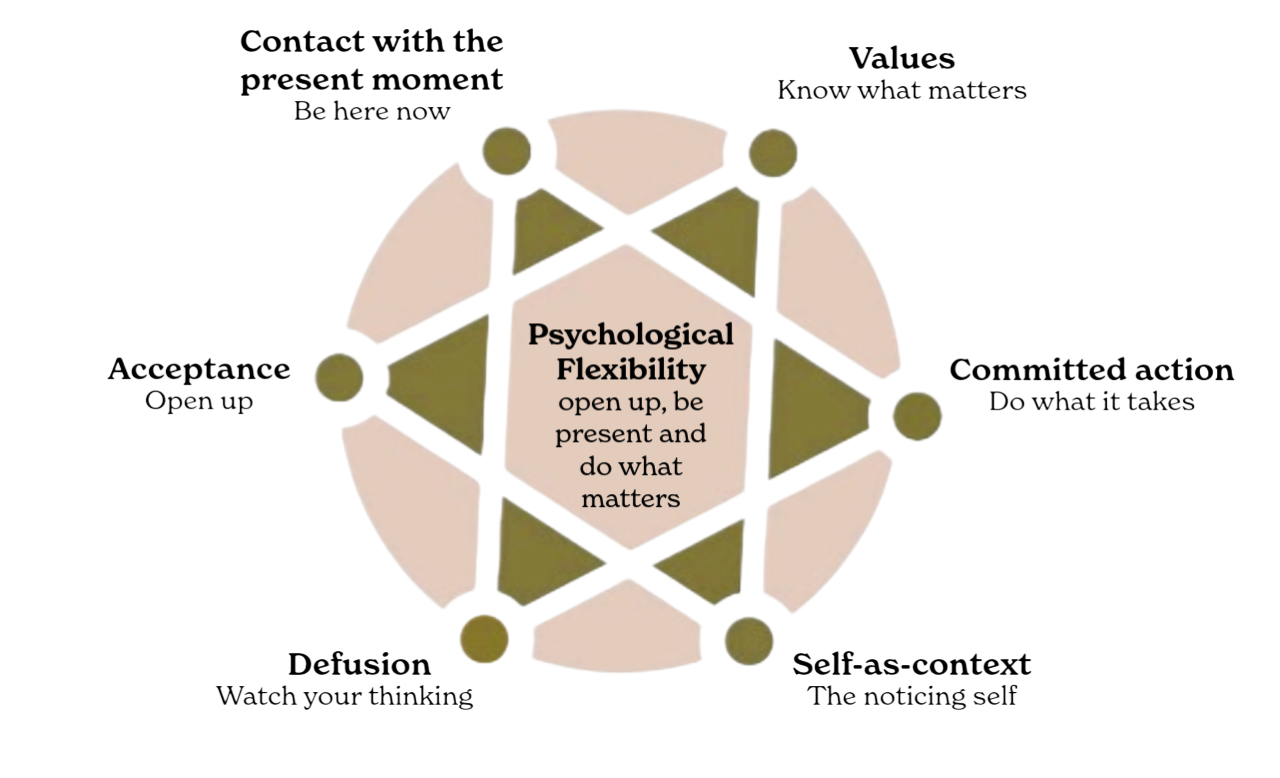Acceptance and Commitment Therapy (ACT)
What Is Acceptance and Commitment Therapy (ACT)?
Acceptance and Commitment Therapy—commonly known as ACT (pronounced like the word "act")—is a type of talking therapy designed to help people deal with difficult thoughts and feelings more effectively, so they can live a fuller and more meaningful life. Instead of trying to get rid of negative thoughts or emotions, ACT teaches you how to change your relationship with them—learning to accept what’s out of your control, and commit to actions that support your values and wellbeing.
ACT is based on six key processes that work together to build what psychologists call psychological flexibility. This means staying connected to the present moment and making choices that align with what really matters to you, even when life is hard.
How Can ACT Help?
Many people find ACT helpful for managing things like anxiety, depression, stress, low self-esteem, chronic pain, trauma, or just feeling stuck. Rather than focusing on "fixing" or "curing" unwanted thoughts or feelings, ACT helps you:
Be more present in your daily life
Accept difficult emotions instead of fighting them
Notice unhelpful thinking patterns without getting caught up in them
Identify your core values—what truly matters to you in life
Take steps toward living the kind of life you want, even when things are challenging
The goal of ACT isn’t to feel good all the time—it’s to feel better at feeling, and to live a life that feels meaningful, whatever challenges come your way.
What Should I Expect If I Try ACT?
If you choose to attend ACT sessions, here’s what you might do:
Talk about your thoughts and feelings in a safe, non-judgmental space
Practice mindfulness, which means learning how to focus your attention and be present
Learn techniques to help you step back from painful thoughts so they have less control over your behaviour
Explore what really matters to you—like relationships, creativity, health, growth, or community
Set small goals that move you closer to the kind of life you want to live
You don’t need any previous experience with therapy or mindfulness. What’s most important is a willingness to be open, curious, and to try out new ways of responding to life’s challenges.
ACT can be a powerful way to stop struggling with your inner world and start building a life that feels more purposeful and connected. It's not about being perfect or happy all the time—it's about showing up for yourself and taking action, even when it’s hard.







